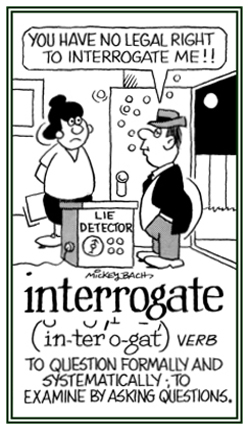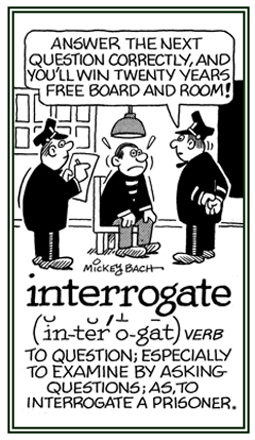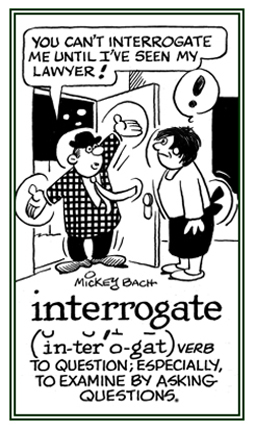inter-, intero-
(Latin: between; among, mutually, together; on the inside, internal)
Although abstracted from the many compounds in which it entered English, the form inter- was not generally considered a living prefix in English until the 1400s.
During the later period of Middle English many words borrowed in the Old and Middle French forms entre-, enter- began to be consciously respelled with Latin inter-; although vestiges of the older French borrowings are found in entertain and enterprise.
The living prefix inter- is now freely added to almost any element in English to create such formations with the meaning of "between" and "among". The words formed by intra- are closely related to this inter- prefix; in fact, they both apparently came from the same Latin source.
2. Extending between the pupils of the eyes; also, extending between the centers of a pair of spectacle lenses; such as, interpupillary distance.
2. A period of time during which there is no government, control, or authority: There was an interregnum, or a time of temporary suspension of government control, when the citizens enjoyed the life of being free to do whatever they wanted to do!
3. A gap in an ongoing activity; interval: An interregnum is the interruption or a pause in any kind of continuous pursuit.
2. A rarely used, nonstandard English-language punctuation mark (‽) intended to combine the functions of a question mark and an exclamation point: The bang in interrobang is a printer's slang term for an exclamation point.
The typographical character resembles those marks superimposed one over the other. In informal writing, the same effect is achieved by placing the exclamation point after or before the question mark; for example, "What?!" or "What!?".
A sentence ending with an interrobang either asks a question in an excited manner or expresses excitement or disbelief in the form of a question: "What? You forgot to put gas in the car?!"
2. To transmit a request to a computer program, or device, for information: Henry's computer interrogated the printer to determine the status of the printing job.



Go to this Word A Day Revisited Index
so you can see more of Mickey Bach's cartoons.
Interrogations come in different settings and styles; such as, questionings, investigations, cross-examinations, or just simple inquiries.
2. A transmission of a signal to a computer, or the transmission of a signal to a device or computer program that triggers a response: The computer programmer was developing the interrogations that would provide the signals which would enhance the use of computers for users.2. Consisting of, or used in, asking a question; such as, an interrogative pronoun:
The five interrogative pronouns are "what", "which", "who", "whom", and "whose".
- What were you doing?
- Who said we couldn't do it?
- To whom were you speaking?
- Which meal did you like the best?
- Whose purse was left on the bus?
Who is your favorite author?
What did you say?
Where did Sally go?
2. In the form of a query: Sally interrogatively looked at her son as if asking if he had finished his homework.


